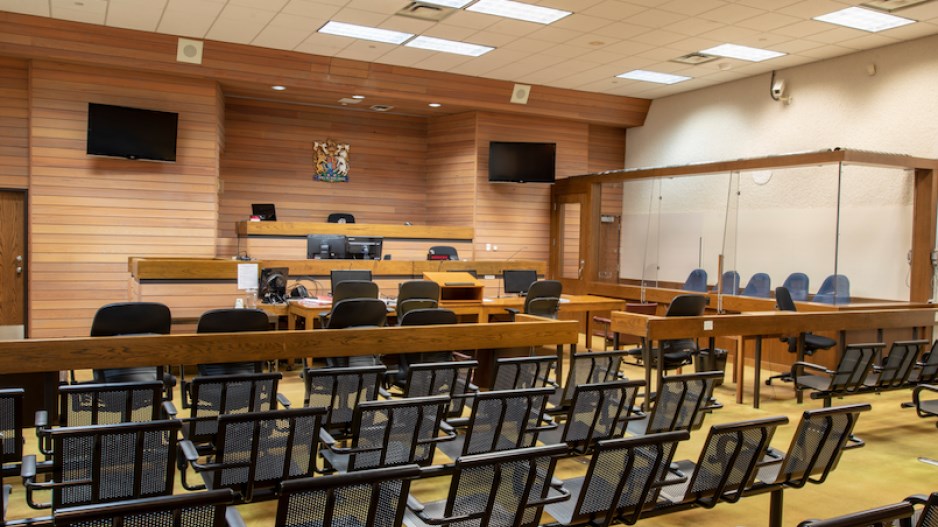B.C. Provincial Court’s chief judge received 230 complaints about judges, justices of the peace and case managers in 2020, the court’s annual report released Feb. 1 says.
When examined, 215 were found not within Chief Judge Melissa Gillespie’s authority.
Indeed, many amounted to appeals from a judicial decision and the complainants were sent appropriate information about appealing. Of the rest, including complaints carried over from 2019, 10 complaint examinations were completed and resolved. No complaints went to an investigation.
Still, the report summarized nine of those cases, including the following:
Extended banter
In a criminal sentencing proceeding, a complainant asserted the judge engaged in “extended banter” with defence counsel, provided unsolicited suggestions and recommendations, and made inappropriate comments. The complainant believed the judge wasn’t taking the case seriously.
The judge was questioned, and the case recording confirmed the comments were made.
The judge apologized and expressed regret at how the complainant perceived them despite their intent,” the report said.
Comments leading to concerns of bias
A judge commented to the complainant organization about a dispute the judge was having with another individual. The complainant asserted the comments were inappropriate and raised some concerns of bias. The judge apologized, stating that their comments were inappropriate and should never have been made, and made assurances that the incident would not affect their court conduct. The judge undertook a review of the Canadian Judicial Council’s Ethical Principles for Judges as they relate to impartiality.
Condescending comments
A complainant from a criminal hearing asserted a judge was unreasonably aggressive towards them and counsel who appeared in a preceding court matter. The complainant also asserted the judge was “confrontational and belittling” and had them removed from the courtroom by a sheriff.
An audio recording confirmed the judge made some disparaging, sarcastic, and condescending comments.
The judge apologized for their conduct and acknowledged they have a responsibility as a judge to treat all those who appear before them evenly and respectfully.
Showing frustration
A complainant from a small claims proceeding asserted a judge “bullied and threatened” one of the parties, “refused to listen” to them, and “threatened” them for speaking out of turn when the other party received no such chastisement for similar behaviour.
The audio recording confirmed all parties were provided with an opportunity to make submissions and the judge asked both parties to refrain from interrupting each other.
The audio recording also indicated the judge’s explanation of procedure was misconstrued as “bullying” behaviour by the complainant. While the audio recording confirmed that the judge demonstrated calmness at significant points throughout the hearing, there were apparent times when the judge showed their frustration with the complainant. The judge apologized for any time during the proceeding in which they failed to demonstrate the proper level of courtesy.
B.C. Provincial Court by the numbers
Gillespie said the court has worked hard to ensure access to justice and the upholding of the rule of law during the pandemic, a situation that has raised unique challenges.
As of March 31, 2021, the court had 124 full-time judges, 26 senior judges, and one sitting part-time. Most judges are 50 to 64 years old. Of the 55 judges appointed in the past five years, 29 were women.
The court heard 156,241 new cases of all types in 2020/21. That included 80,171 criminal, family and civil matters heard by judges (down 26 per cent from 2019/20) and 76,070 traffic ticket & bylaw offences heard by judicial justices (down 4 per cent).
Of 501,183 total appearances in criminal, family and small claims matters, 385,130 used technology-enabled appearances. Such situations are when at least one participant attends remotely, using telephone or Microsoft Teams conferencing.
The report said such technology increased access to justice and allowed the court to make efficient use of judges during the pandemic.
“Litigants and lawyers were able to make court appearances and attend conferences and hearings from their homes or offices. Conducting bail hearings virtually avoided displacing accused persons from their communities, saved them and sheriffs hours of travel to courts, and allowed judges in smaller communities to complete trials without interruption by bail hearings,” the report said.
The court oversaw a total of 60,923 self-represented appearances in 2020/21, a 41 per cent decrease compared to the previous year.
The court’s total operating expenses for the period was $63.7 million, of which $58.4 million was salaries and benefits.




